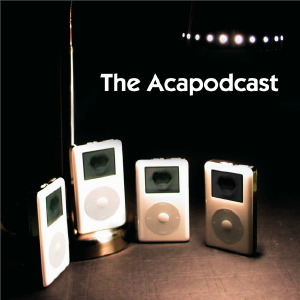
A cappella (Italian: "in the church style") music is vocal music or singing without instrumental accompaniment, or a piece intended to be performed in this way. A cappella is Italian for "in the style of the chapel", and was originally intended to differentiate between Renaissance polyphony and Baroque concertato style. In the 19th century a renewed interest in Renaissance polyphony coupled with an ignorance of the fact that vocal parts were often doubled by instrumentalists led to the term coming to mean unaccompanied vocal music. In modern usage, a cappella often refers to an all-vocal performance of any style, including barbershop, doo wop, and modern pop/rock.
Religious traditions
Present-day Christian religious bodies known for conducting their worship services without musical accompaniment include some Presbyterian churches devoted to the regulative principle of worship, Old Regular Baptists, Primitive Baptists, Plymouth Brethren, most congregations among the churches of Christ, the Old German Baptist Brethren , the Eastern Orthodox Christian Church and the Amish. Many Mennonites also conduct some or all of their services without instruments. Sacred Harp, a type of religious "folk" music, is an a cappella style of religious singing, but is more often sung at singing conventions than at church services.
Christian a cappella polyphony began to be developed in Europe around the late 1400s; early works are often identified with Josquin des Prez. The early a cappellas seem to have had an accompanying instrument, although this instrument doubled the singers and were not independent. By the 1500s, a cappella polyphony had been fully developed; Giovanni Pierluigi da Palestrina's works are considered excellent examples. After Palestrina, the cantata began to take the a cappella's place.
Christian
Traditional Jewish religious services do not include musical instruments. The use of instruments is traditionally forbidden on the Sabbath out of concern that players would be tempted to repair their instruments, which is forbidden on those days. (This prohibition has been relaxed in many Reform and some Conservative congregations.) Similarly, when Jewish families and larger groups sing traditional Sabbath songs known as zemirot outside the context of formal religious services, they usually do so a cappella, and Bar and Bat Mitzvah celebrations on the Sabbath sometimes feature entertainment by a cappella ensembles. Moreover, many Jews consider the 49-day period of the counting of the omer between Passover and Shavuot to be a time of semi-mourning when instrumental music is not allowed. This has led to a tradition of a cappella singing sometimes known as sefirah music.
Jewish
Some Muslims have also adopted the idiom of a cappella music. Muslim a cappella songs are called anasheed.
 Emulating instruments
Emulating instruments Lefthit
Lefthit
No comments:
Post a Comment